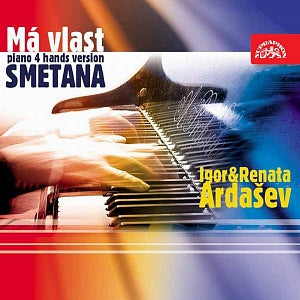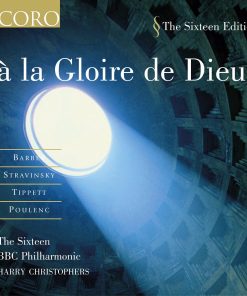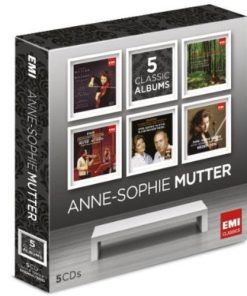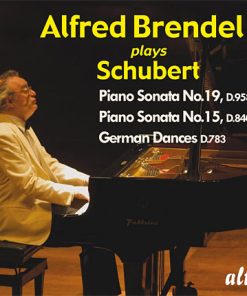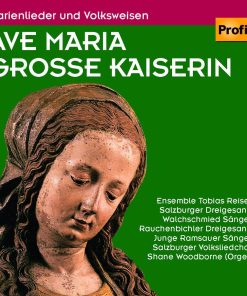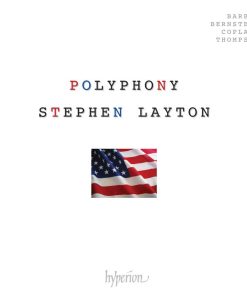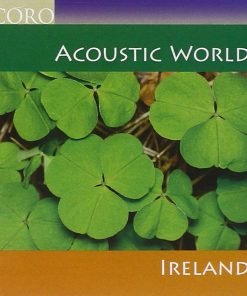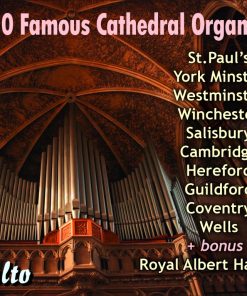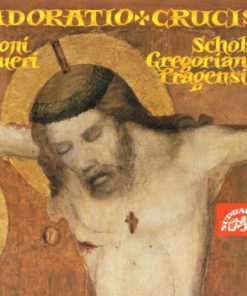SMETANA: Ma Vlast (4 hand piano version) – Igor & Renata Ardasev SUPRAPHON
$ 3,99 $ 2,39

The most widely popular symphonic work of Czech Romantic music literature – the cycle of tone poems, My Country, by Bedřich Smetana (1824 – 1884) – was shortly after the completion of its full orchestral version arranged also for piano duet. The piano reduction, from the pen of the composer himself, attests to his own idea of the functional hierarchy in an orchestral score. Tobe sure, My Country is the work of a composer who was no longer in sensory auditive control of his nascent music. As an active pianist, Smetana was closely acquainted with the various technical devices and potentialities of piano stylization; consequently, the outcome of his transcription of the orchestral version into piano texture represents a remarkable feat in terms of sheer musical imagination. Indeed, Smetana succeeded in turning his piano reductions of the individual tone poems here to ideal vehicles of his intention which was to popularize the larger work, at the same time creating a series of virtuoso pieces entitled to autonomous existence on the concert platform. For its part, Supraphon laid the interpretation of the six tone poems into the hands of two artists best suited for this task: the husband and wife piano duet of Igor and Renata Ardašev, whose performing experience, coupled with exquisite co-ordination, empathy in feeling for the music and, last but not least, dazzling technical dispositions, predetermine this recording for an enthusiastic reception.

Bedřich Smetana
My Country. A Cycle of Symphonic Poems
1. Vyšehrad (Lento. Largo maestoso – Grandioso – Allegro vivo ma non agitato – Lento ma non troppo – Largamente) 14:01
2. Vltava (Moldau) (Allegro comodo, non agitato) 11:00
3. Šárka (Allegro con fuoco, ma non agitato – Piu moderato assai – Moderato ma con calore – Adagio. Moderato – Molto vivo) 09:33
4. From Bohemian fields and groves (Molto moderato – Allegro poco vivo, ma non troppo – Presto) 11:57
5. Tábor (Lento – Molto vivace – Lento maestoso) 12:59
6. Blaník (Allegro moderato – Andante non troppo – Piu allegro, ma non molto – Tempo di marcia – Largamente maestoso – Piu vivo) 13:30
Fast Shipping and Professional Packing
Due to our longstanding partnership with UPS FedEx DHL and other leading international carriers, we are able to provide a range of shipping options. Our warehouse staff are highly trained to pack your goods exactly according to the specifications that we supply. Your goods will undergo a thorough examination and will be safely packaged prior to being sent out. Everyday we deliver hundreds of packages to our customers from all over the world. This is an indication of our dedication to being the largest online retailer worldwide. Warehouses and distribution centers can be located in Europe as well as the USA.
Orders with more than 1 item are assigned processing periods for each item.
Before shipment, all ordered products will be thoroughly inspected. Today, most orders will be shipped within 48 hours. The estimated delivery time is between 3-7 days.
Returns
The stock is constantly changing. It's not entirely managed by us since we are involved with multiple parties such as the factory and our storage. The actual stock can fluctuate at any time. Please understand it may happen that your order will be out of stock when the order is placed.
Our policy is valid for 30 days. If you haven't received your product within 30 days, we're not able to issue either a return or exchange.
You are able to return a product if it is unused and in the same condition when you received it. It must also still remain in the original packaging.
Related products
MUSIC CD
MUSIC CD
MUSIC CD
MUSIC CD
